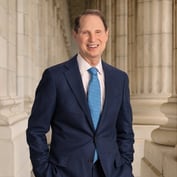Death Tax? No! Its The Jealousy Tax
To The Editor:
I agree 100% with Mr. Piontek that the use of “death tax” as a euphemism for the federal estate tax is not proper (see The Editor’s Edge, May 10). It should really be called “the jealousy tax!”
Mr. Piontek’s leftist bleatings that members of our legislatures regularly waste tax dollars are certainly well founded. That, unfortunately, is not a justification for a tax that has no rationale other than the “Robin Hood” theory of taxation. We all remember Robin Hood as a charismatic figure. Most forget that Robin Hood was a thief! There is little difference between Robin Hood and Willie Sutton. They both took their thievery to “where the money is.”
What could possibly be more lame than the attempt to justify a tax by indicating that it only impacts a small number of people and that those people can afford it.
Would any union allow one worker to be assigned to carry the heaviest loads because he or she is bigger than a co-worker? Would there not be an outcry if a loan officer were required to process more applications than the person at the next desk because he or she had a higher IQ? Frankly, I fail to see the moral difference between these examples of discrimination and the federal estate tax.
All assets held in estates were created from dollars that were taxed when they were first earned. Dividends, interest, rents and royalties were taxed, as were realized capital gains. Those who believe that these assets should be taxed again at death are those who are simply jealous of their more successful neighbors.
Most people who have amassed large sums did so because they were smarter and/or worked harder than the rest of us. Was there some luck involved? Probably. As a noted sports commentator once said, “I can always spot a ‘lucky’ basketball team. It’s the one whose guards have scabs on their knees from diving for loose balls.”
The entrepreneurs and inventors who would be the subject of such taxes were, in the main, the risk takers. They often started their careers by mortgaging their homes and taking no salaries from their startup businesses. Work weeks were not 40 hours but often double that. Jobs were created, new products and services were introduced, and every citizen benefited from their efforts.
Those among us who were unwilling to take such risks or work as long or as hard will never accept the fact that their own lack of financial success resulted from that very unwillingness. It is easier to denigrate the success of others by assuming that there was dishonesty involved. That process eliminates the sense of failure. After all, “I could have achieved that if I’d been willing to do those things!”
So, we read in the popular press the lamentations of people such as Mr. Piontek that the “rich” do not pay their “fair share.” The fact that 7.5% of the population pays 56% of all income taxes is ignored.
He stated that “a few millionaires will make out like bandits.” This assumes that all money belongs to the government and that anything we get to keep is based on its largesse. In fact, all money belongs to those who earn it and the government is entitled to no more than it needs to provide necessary services to its citizens. The “bandit” is the jealousy tax.
Charles Gorenberg, MSFS, CLU, ChFC, APM, CEBS
President
Chaslyn Financial Group
Marlton, N.J.








 May 27, 2004 at 08:00 PM
May 27, 2004 at 08:00 PM










